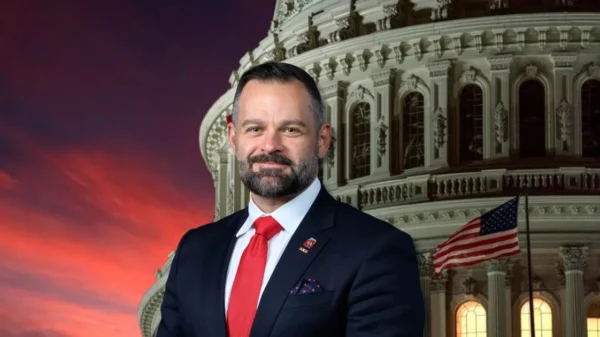This week, U.S. Rep. Brian Mast, R-Fla., paired up with a South Carolina Democrat on a proposal to help local fisheries deal with the impact of climate change.
With Mast as the main cosponsor, U.S. Rep. Joe Cunningham, D-SC, introduced the “Climate-Ready Fisheries Act” on Tuesday.
“The Climate-Ready Fisheries Act of 2019 directs the Government Accountability Office (GAO) to examine what actions have already been taken by fishery managers to prepare for the impacts of climate change,” Mast’s office noted. “The bill also requires the GAO to identify whether any knowledge or funding gaps are hindering action and provide recommendations for how to better adapt fishery management in local communities. It also directs the GAO to offer recommendations for how Congress can enhance our nation’s science and management systems to better address climate change.”
The congressmen weighed in on the bill on Tuesday.
“Lowcountry fishermen are some of the hardest working people in South Carolina, and climate change has put their way of life under direct attack. The Climate-Ready Fisheries Act gives our fishermen the tools they need to continue fishing sustainably for generations to come,” Cunningham said.
“Ultimately, well-managed fisheries are resilient fisheries,” he added. “I’m proud to introduce this bipartisan legislation to help us learn what is working, what is not, and how we can be the best possible stewards of our natural resources.”
“Healthy waterways are critical to our environment and economy—supporting the businesses in our communities that rely on fishing and tourism to thrive,” Mast said. “This bill will go a long way to protect our local fisheries and promote healthier ecosystems for generations to come.”
The bill has the support of the Ocean Conservancy, the National Audubon Society, Earthjustice, Oceana, the Natural Resources Defense Council (NRDC), the Coastal Conservation League and the Marine Fish Conservation Network.
U.S. Rep. Jared Huffman, D-Calif., and U.S. Rep. Francis Rooney, R-Fla., are also cosponsoring the bill which was sent to the U.S. House Natural Resources Committee. So far, there is no companion bill in the U.S. Senate.
Reach Kevin Derby at kevin.derby@floridadaily.com.

















